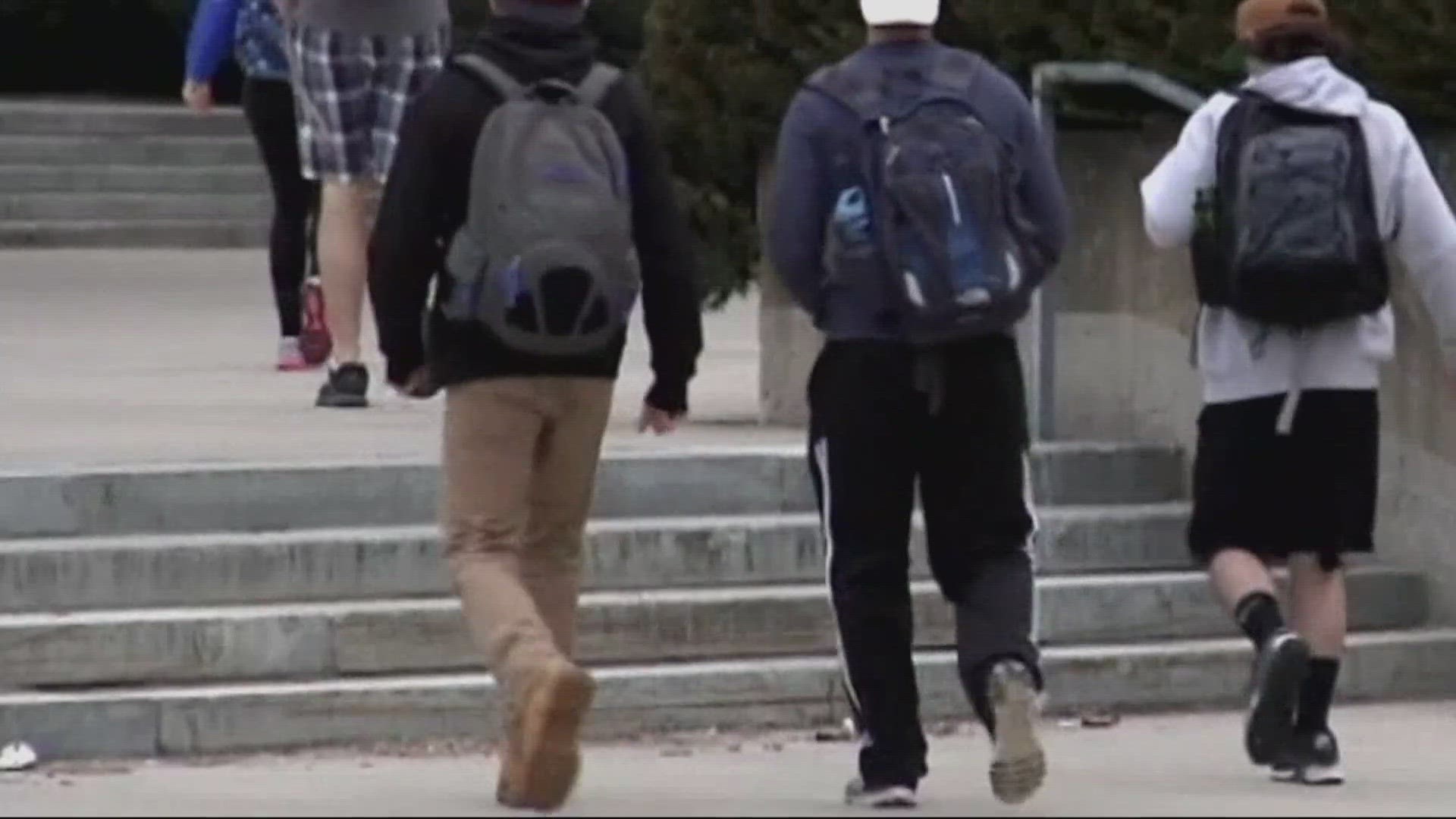EUGENE, Ore. — A University of Oregon doctoral candidate will get to expand her research on recovery high schools, thanks to a new grant. The schools help teens fighting drug abuse and addiction to get back on their feet.
An estimated 17,000 Oregon youth struggle with substance-use disorders, and 9 out of 10 don't receive treatment. The new research grant will help figure out how to help them the most.
"My research primarily focuses on adolescent mental health and substance use, particularly, evidence and looking at how programs work," explained doctoral candidate Lauren Berny.
Recent studies followed hundreds of adolescents after treatment. Those students either went to a recovery high school or back to a traditional school.
"We know there's a positive effect of recovery high schools. Adolescents that attend recovery high schools have a higher probability of being in recovery 6 to 12 months later," Berny said.
The recovery high schools provide education and recovery support to students, as well as help those who relapse.
"If they do end up using substances, it's to a less frequent amount," Berny said.
Lauren received a two-year grant from the National Institute on Drug Abuse, worth $86,412, to expand the research and learn what makes those schools so successful.
"Primarily, what I hypothesize is that with pro-recovery is peer affiliation, so being able to have social connectedness and feeling belongness and that you can relate to students," she said.
Lauren said this type of research could be a turning point in helping kids that struggle.
"It's really important to invest in continuing care in recovery, so we can find out what's working, and if we aren't able to do a recovery high school yet, how can we implement some of these components that are driving these effects?" she explained.
For more information on the National Institute on Drug Abuse and its research, check out this link.

